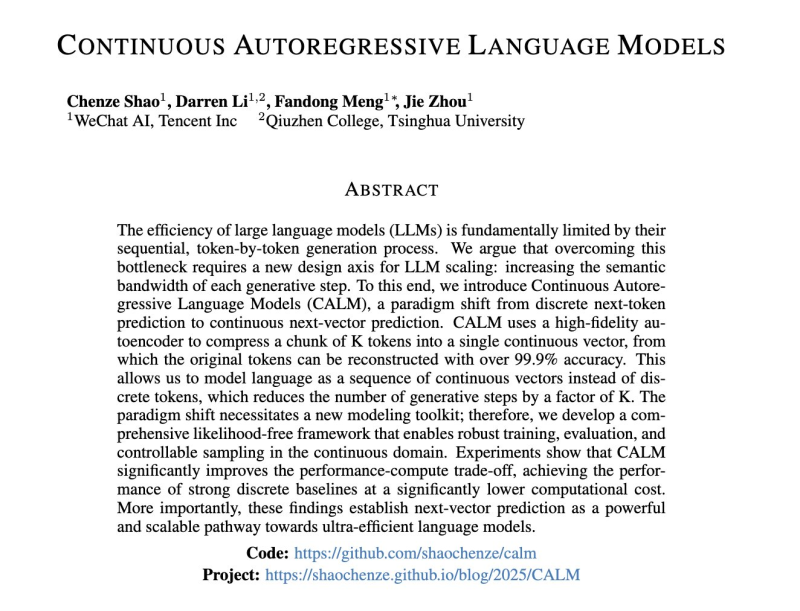● Researchers from Tencent's WeChat AI Lab and Tsinghua University just dropped a paper that could change everything we know about language models. The work, introduces something called Continuous Autoregressive Language Models, or CALM for short.
● Here's the big idea: instead of predicting one word at a time like every other AI out there, CALM predicts entire chunks of meaning as continuous vectors. As Robert Youssef put it, this approach "basically kills the next-token paradigm every LLM is built on." Think of it like upgrading from typing letter-by-letter to streaming complete thoughts instantly.

● The numbers are impressive. CALM needs 44% less compute during training and takes 4× fewer steps to generate responses, all while keeping accuracy above 99.9% through a sophisticated autoencoder. The authors—Chenze Shao, Darren Li, Fandong Meng, and Jie Zhou—essentially found a way to make AI reasoning faster and cheaper without sacrificing quality.
● Of course, there are tradeoffs. Moving away from discrete tokens into continuous space makes models harder to interpret and control. Traditional evaluation methods don't really work anymore when you're not dealing with individual words. The researchers acknowledge these challenges and introduced new tools like BrierLM, a metric designed specifically for continuous reasoning.
● The financial implications could be huge. Halving compute requirements means lower costs, faster experiments, and more opportunities for smaller teams to compete. It's the kind of efficiency gain that could democratize AI research beyond the tech giants with massive server farms.
● CALM also brings along some clever technical innovations, including an energy-based transformer that doesn't rely on softmax or fixed vocabulary limits—solving some long-standing architectural bottlenecks.
 Marina Lyubimova
Marina Lyubimova

 Marina Lyubimova
Marina Lyubimova


